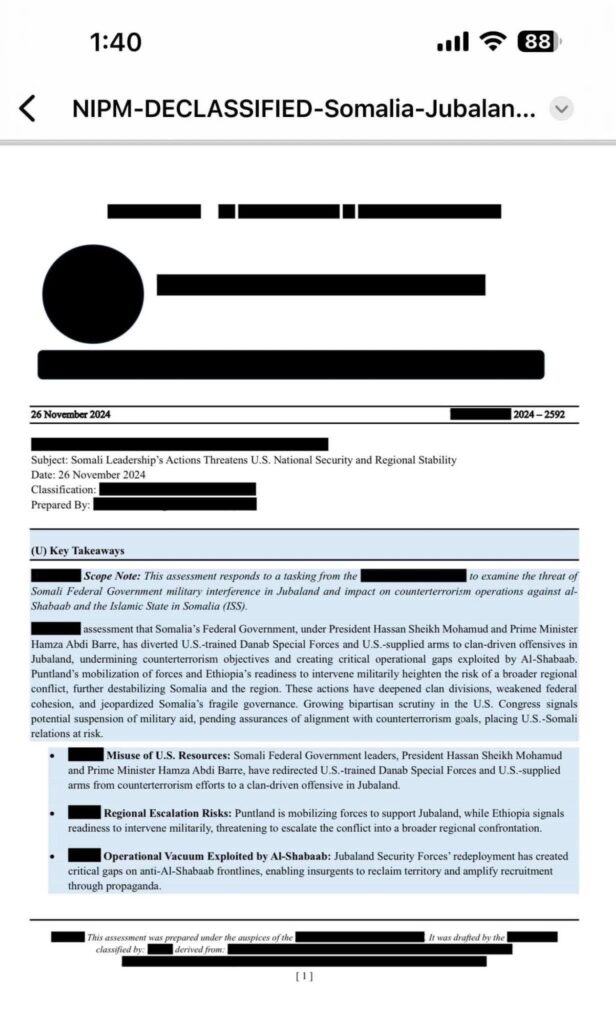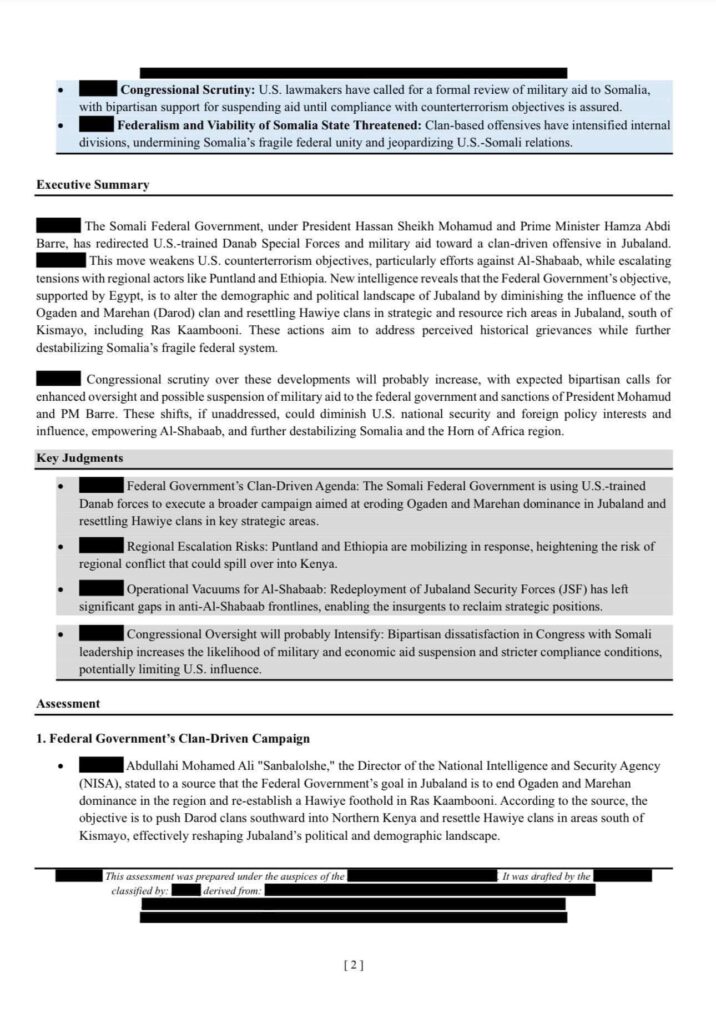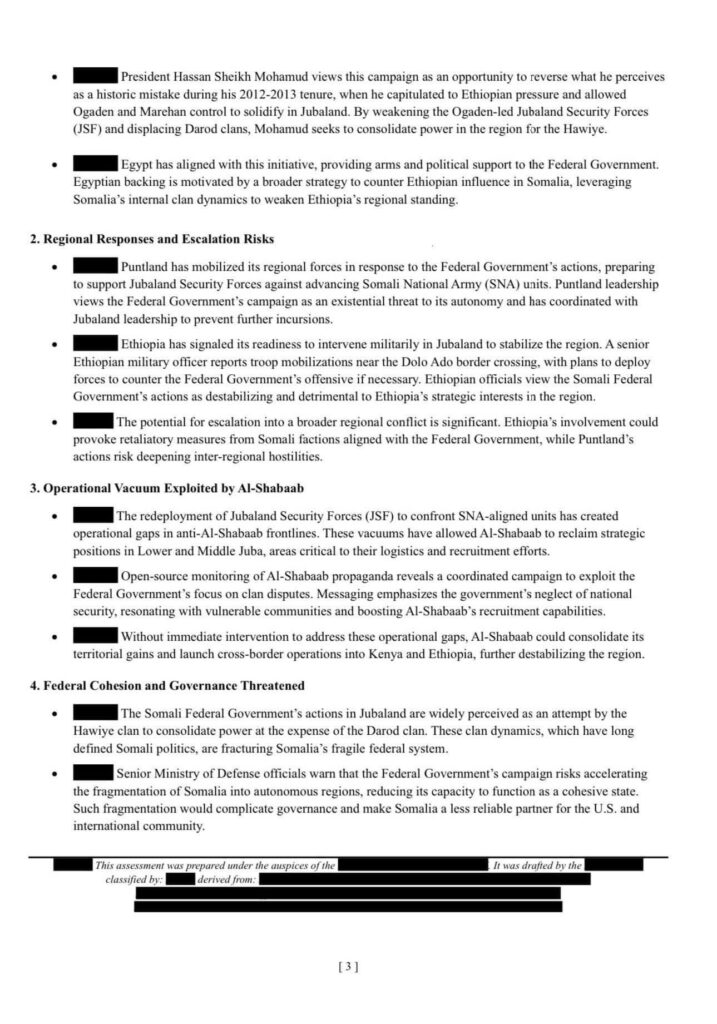Idil News – A recently declassified U.S. intelligence assessment dated November 26, 2024, details that actions by the Somali Federal Government threaten U.S. national security and destabilize the region. The document, titled “Somali Leadership’s Actions Threatens U.S. National Security and Regional Stability,” focuses on the military interference in Jubaland and its impact on counterterrorism efforts against Al-Shabaab and the Islamic State in Somalia (ISS).

Key findings from the assessment
Misuse of U.S. Resources: The Somali Federal Government, led by President Hassan Sheikh Mohamud and Prime Minister Hamza Abdi Barre, has evidence that diverted U.S.-trained Danab Special Forces and U.S.-supplied arms from counterterrorism objectives to clan-driven offensives in Jubaland. This shift has weakened counterterrorism efforts against Al-Shabaab, produced operational gaps and successfully taken advantage of by the militant group al-Shabaab.

Regional Escalation Risks: The mobilization of forces by Puntland in response to the Federal Government’s actions, coupled with Ethiopia’s readiness to intervene militarily, increases the risk of regional conflict and eventually potentially spill over into neighboring countries, including Kenya, further destabilizing the Horn of Africa.
Operational Vacuum for Al-Shabaab: The redeployment of Jubaland Security Forces has left significant operational gaps in anti-Al-Shabaab fronts, allowing the insurgents to reclaim strategic positions and enhance their recruitment efforts. Without immediate action, Al-Shabaab could consolidate its territorial gains and extend operations into Kenya and Ethiopia.

Threat to Federal Cohesion: The actions in Jubaland are perceived as an attempt by the Hawiye clan to consolidate power, exacerbating clan divisions and threatening Somalia’s fragile federal system. Senior officials from the Ministry of Defense warn that this presumably leads to the fragmentation of Somalia into autonomous regions, complicating governance and reducing its reliability as a partner for the U.S. and international community.
The report suggests that these developments have led to bipartisan scrutiny in the U.S. Congress, with calls for enhanced oversight and potential suspension of military aid to Somalia. Such political shifts could diminish U.S. influence in the region, empowering Al-Shabaab and further destabilizing Somalia and the Horn of Africa.
Reported by Jibril Qoobey
Discover more from Idil News
Subscribe to get the latest posts sent to your email.






